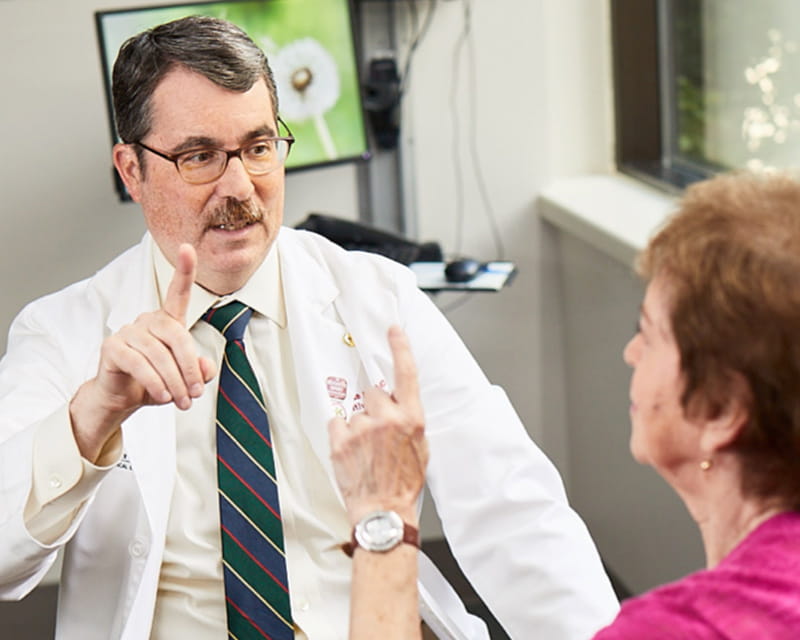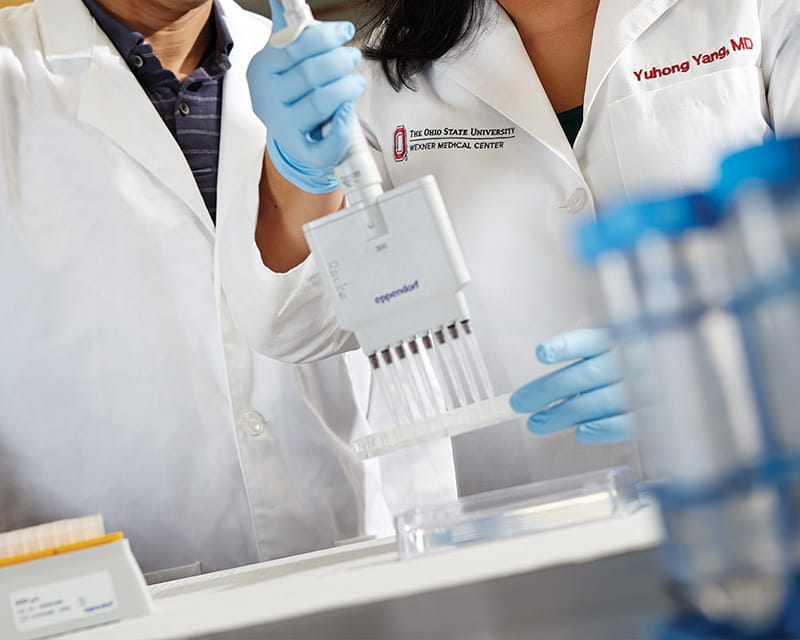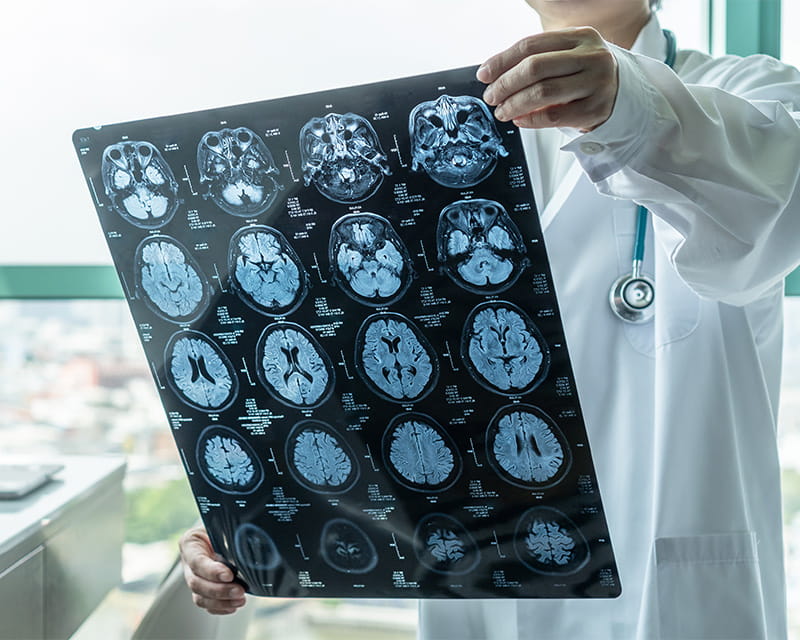
Ohio State researchers identify new biomarkers that differentiate Lewy body dementia from Alzheimer’s and Parkinson’s
 In a country with only 72 neurologists and 120 million people, the ailing far outnumber the physicians available to care for them.
In a country with only 72 neurologists and 120 million people, the ailing far outnumber the physicians available to care for them.
With the goal of sharing knowledge, research and technology to help neurologists in Ethiopia and other countries, The Ohio State University Wexner Medical Center has begun the Global Neurology Initiative.
The new initiative will link Ohio State’s faculty and resident neurologists with resident neurologists first in Ethiopia, then, as the program expands, in other countries as well.
Resident neurologists from Addis Ababa University in Ethiopia’s capital have begun meeting online monthly with neurologists from the Ohio State Wexner Medical Center to discuss challenging cases and research on treatment. In this way, neurologists in Ethiopia and Ohio State will learn from each other’s challenges and improve brain health in both countries.
“We talk about health care disparities happening in the United States. There are also health care disparities happening worldwide,” says Bakri Elsheikh, MBBS, a neurologist and neuromuscular division director at the Wexner Medical Center and clinical professor in the Department of Neurology at The Ohio State University College of Medicine.
“We’re looking to share knowledge and resources between those who have and those who don’t have.”
As the program grows, partnerships with countries abroad could include collaborating on research, as well as Ohio State providing training, medical supplies and technology. Another aim is for resident neurologists from Ohio State to have an opportunity to serve rotations in Ethiopia and other countries and assist with cases via telehealth. That will offer resident neurologists at Ohio State valuable insight into how neurology is practiced in other countries.
“In today’s world, understanding the practice of global neurology is a must,” says Dr. Elsheikh, who started the Global Neurology Initiative and who was a physician in Africa, Asia and Europe before coming to the United States.
Working together, resident neurologists and faculty from Ohio State and Addis Ababa University can develop innovative solutions to diagnose, treat and manage neurological conditions, says Yared Zewde, MD, an assistant professor and chair of the Department of Neurology at Addis Ababa University.
“This partnership enhances the research capabilities of both institutions,” Dr. Zewde says. “It holds great promise for advancing our understanding and treatment of neurological disorders, particularly in neuromuscular diseases, which ultimately leads to improved patient care and quality of life.”
By collaborating with peers in Ethiopia, resident neurologists at Ohio State will gain perspective on how culture, economics and access to technology and medical supplies can make treating people with disorders of the brain and nervous system in Ethiopia different than in the United States.
In some countries, physicians might not have an MRI available to them, so they have to depend on the physical exam and patient history to diagnose patients.
“This can be eye-opening for trainees and an important opportunity to learn how to provide quality care if such technology is not available,” says Danielle Becker, MD, neurologist and epilepsy division director at the Wexner Medical Center and a clinical associate professor of Neurology at the Ohio State College of Medicine.
With an ever-growing immigrant population in the United States, the Global Neurology Initiative will help resident neurologists at Ohio State better communicate with and care for their patients from another country, says Youssra Saqr, MD, a neurology resident at the Wexner Medical Center.
“A lot of neurology is practiced in rural areas that have limited resources compared to the academic centers that so many of us train within. So this partnership could help enhance our skill sets to better serve the community at large.”

Ohio State researchers identify new biomarkers that differentiate Lewy body dementia from Alzheimer’s and Parkinson’s

Biomarker breakthroughs at Ohio State transform disease diagnosis, predictability and treatment

The Ohio State University Wexner Medical Center pushes boundaries for neurological care